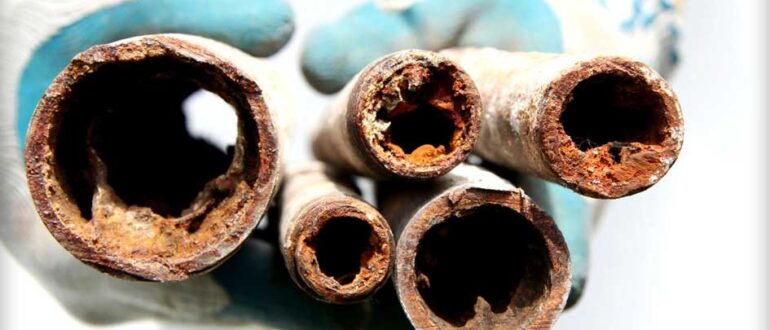The quality of water in a household can have a significant impact on the lifespan of its water supply system. A water supply system comprises a network of pipes that transports water from the source to the consumer. The water quality affects the pipes and fittings in the network and can cause corrosion, leaks, clogs, and other issues. In this article, we will examine the different characteristics of water and how they impact water supply systems. We will also provide examples of water quality in different Australian states.
Water Hardness
One of the most common characteristics of water that affects water supply systems is water hardness. Hard water contains high levels of minerals such as calcium and magnesium. These minerals form scale, which accumulates on the inside of pipes, valves, and fittings. Over time, the scale buildup can lead to clogs, reduced water pressure, and even pipe bursts. Moreover, the mineral buildup can corrode pipes and fittings, leading to leaks and costly repairs.
The hardness of water is measured in milligrams per liter (mg/L) of calcium carbonate. Water with less than 60 mg/L is considered soft, while water with more than 180 mg/L is considered hard. In Australia, the water hardness varies depending on the region. For example, the water in Perth is considered moderately hard, with a range of 100-200 mg/L. In Melbourne, the water is soft, with a range of 10-60 mg/L. In Adelaide, the water is hard, with a range of 150-250 mg/L.
Water pH
Another characteristic of water that affects water supply systems is water pH. pH is a measure of the acidity or alkalinity of water. The pH scale ranges from 0 to 14, with 7 being neutral. Water with a pH below 7 is considered acidic, while water with a pH above 7 is considered alkaline.
Water that is too acidic or too alkaline can corrode pipes and fittings. Acidic water dissolves metal ions from pipes and fittings, leading to corrosion and leaks. Alkaline water can cause the buildup of scale and mineral deposits, reducing water flow and leading to clogs.
In Australia, the water pH varies depending on the region. In Sydney, the water is slightly alkaline, with a pH range of 7.2-8.1. In Brisbane, the water is slightly acidic, with a pH range of 6.5-7.5. In Darwin, the water is highly alkaline, with a pH range of 8.5-9.5.
Water Chlorine Levels
Chlorine is commonly added to water as a disinfectant to kill bacteria and viruses. However, high levels of chlorine can have negative effects on water supply systems. Chlorine is a highly reactive chemical that can cause corrosion and degradation of pipes and fittings. Moreover, chlorine can react with organic matter in the water to form harmful byproducts, such as trihalomethanes (THMs), which are known to cause cancer.
The acceptable level of chlorine in drinking water is 4 mg/L. However, some water supply systems may exceed this level, leading to negative impacts on plumbing. In Australia, the water chlorine levels vary depending on the region. In Perth, the water chlorine level is low, with a range of 0.1-0.3 mg/L. In Sydney, the water chlorine level is high, with a range of 1-2 mg/L.
Water Mineral Content
The mineral content of water can also impact water supply systems. High levels of minerals such as iron, manganese, and zinc can cause staining, discoloration, and bad taste and odor in the water. Moreover, the minerals can build up inside pipes and fittings, leading to clogs and reduced water pressure. In some cases, the mineral buildup can cause corrosion and leaks.
In Australia, the mineral content of water varies depending on the region. In Perth, the water has a low mineral content, with a range of 10-30 mg/L for iron and less than 5 mg/L for manganese and zinc. In Brisbane, the water has a high mineral content, with a range of 200-500 mg/L for calcium and 20-50 mg/L for magnesium.
Conclusion
The quality of water can have a significant impact on water supply systems in households. Water hardness, pH level, chlorine levels, and mineral content can all affect pipes, valves, and fittings, leading to clogs, reduced water pressure, and leaks. It is essential to consider the water quality when installing a new water supply system or upgrading an existing one. Moreover, regular maintenance and monitoring of the water supply system can help detect issues early and prevent costly repairs. Finally, if you are concerned about the quality of your water supply, you should contact your local water authority or a licensed plumber for advice.
In summary, the characteristics of water in different Australian states vary significantly, and understanding the impact of water quality on plumbing systems is crucial. Regular maintenance and monitoring of water supply systems can help detect issues early and prevent costly repairs. Overall, being mindful of water quality and taking proactive measures can help ensure the longevity and reliability of household water supply systems.

